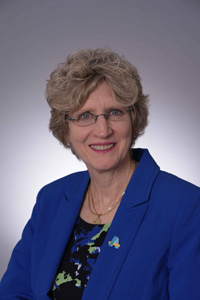Fighting Mental Health Stigma and the Road to Recovery
Imagine you have a stomach ache. Not an ordinary upset stomach, but an ache so significant it interfered with your ability to go to work, cook dinner, see your friends, or play with your children. How long would you live with that pain until you went to the doctor? A day? A week?
For people suffering with mental illness, it is often years, sometimes a decade, between the onset of symptoms and beginning treatment. For most people, the stigma associated with mental illness is the biggest obstacle to starting treatment.
To understand the importance of addressing mental illness as a public health concern, it is important to understand its prevalence. Each year, approximately 1 in 5 American adults experiences a mental illness. For children aged 13-18, approximately 1 in 5 will experience a behavioral health challenge. Suicide is the 10th leading cause of death in the United States; 3rd for people aged 10-24; and 2nd for people 15-24.
The impact on our society is significant, as well, with depression as the most disabling condition worldwide. Serious mental illness results in $193.2 million in lost wages each year. Children who receive special education services and have a behavioral health condition drop out of school at an alarming rate, 37%. And perhaps the most eye-opening statistic of all – more soldiers die by suicide than in combat.
The scientific research informing the treatment and prevention of mental illness continues to evolve quickly. It is now understood that mental illness is a complex set of brain disorders that includes genetic risk and enormous variation that can be triggered by environmental factors, particularly chronic stress, in early childhood. For people with serious disorders, the onset of symptoms begins in childhood or adolescence, making mental illness a developmental disability. Despite these facts, we are still struggling to bring the focus on prevention, treatment, and recovery that will change the course and lessen the impact of mental illness on people and our communities.
Imagine a world where nobody dies due to suicide, or when prevention becomes so deeply embedded in our culture that no child experiences trauma. With the breakthroughs in science, we can now anticipate a day when this is possible, but only if we address mental illness as a public health concern and fully accept the reality that, with the right treatment and supports, recovery is possible.
How do we start? First we must more deeply understand that it is our families, friends, and neighbors who are living with mental illness, and each experience is unique. We must also choose our words more carefully. I am hard-pressed to think of another illness whose terminology is so widely and inappropriately used in pop culture or whose symptomatology is so misunderstood. People with behavioral health challenges fight the battle to wellness every day. They deserve our respect and support.
Serious needs are best addressed through recovery-oriented plans directed by the person and their family. Access to these services is the key to success, and we are fortunate to have many agencies in our community doing this important work, including the one I am proud to lead.
Access: Supports for Living provides many effective services and supports to people with behavioral health challenges, including advocacy and family support for children and youth; a Mobile Mental Health Team; mental health counseling services; intensive outpatient services; community living support; and case management. We work closely with other providers, including social service and physical healthcare providers, to assist people working towards or those in mental health recovery achieve health and wellness.
We must continue to fight the stigma that still stops people from seeking the treatment they need. If we all treat mental illness as we would any other public health issue, we can alleviate its effects on our society and imagine a day when most disorders are prevented, treatment is easily and readily received, and recovery is everyone’s expectation.
To learn more about the services we offer at Access or to get help for yourself or someone you care about, visit our website at www.accesssupports.org or call 888-750-2266.
Amy Anderson- Winchell, LCSW
President and CEO
Access: Supports for Living


